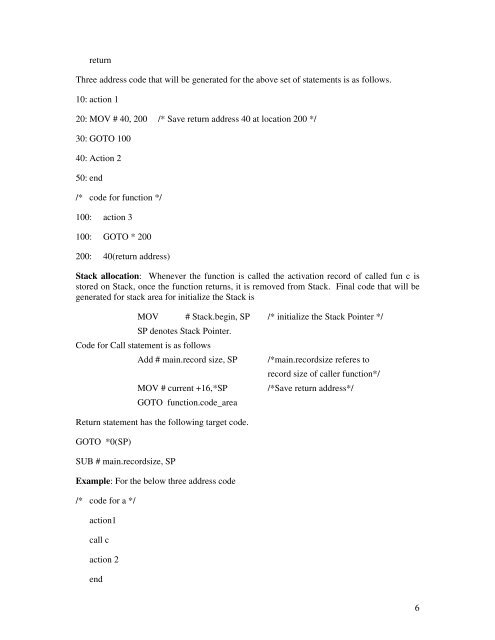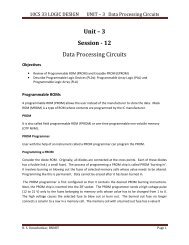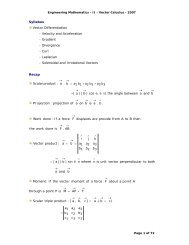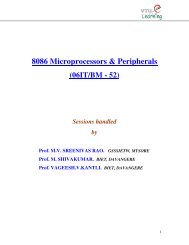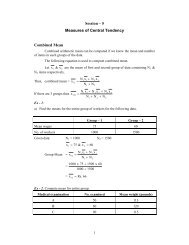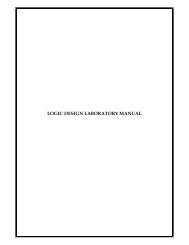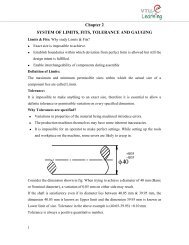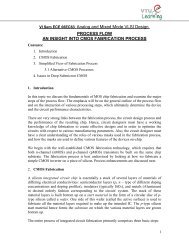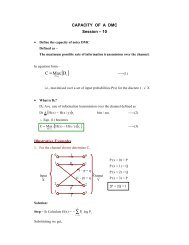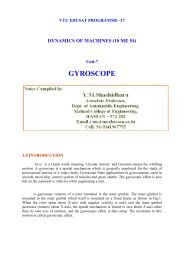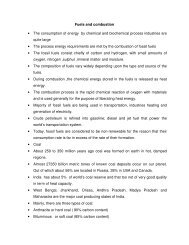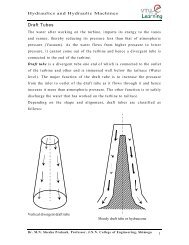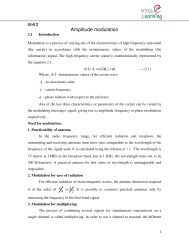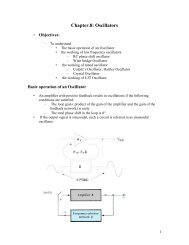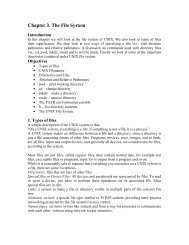1 Code Generation Code generator phase ... - VTU e-Learning
1 Code Generation Code generator phase ... - VTU e-Learning
1 Code Generation Code generator phase ... - VTU e-Learning
You also want an ePaper? Increase the reach of your titles
YUMPU automatically turns print PDFs into web optimized ePapers that Google loves.
eturn<br />
Three address code that will be generated for the above set of statements is as follows.<br />
10: action 1<br />
20: MOV # 40, 200 /* Save return address 40 at location 200 */<br />
30: GOTO 100<br />
40: Action 2<br />
50: end<br />
/* code for function */<br />
100: action 3<br />
100: GOTO * 200<br />
200: 40(return address)<br />
Stack allocation: Whenever the function is called the activation record of called fun c is<br />
stored on Stack, once the function returns, it is removed from Stack. Final code that will be<br />
generated for stack area for initialize the Stack is<br />
MOV # Stack.begin, SP /* initialize the Stack Pointer */<br />
SP denotes Stack Pointer.<br />
<strong>Code</strong> for Call statement is as follows<br />
Add # main.record size, SP /*main.recordsize referes to<br />
record size of caller function*/<br />
MOV # current +16, *SP /*Save return address*/<br />
GOTO function.code_area<br />
Return statement has the following target code.<br />
GOTO *0(SP)<br />
SUB # main.recordsize, SP<br />
Example: For the below three address code<br />
/* code for a */<br />
action1<br />
call c<br />
action 2<br />
end<br />
6


